The MoriaCoronaAwarenessTeam , a humanitarian organisation in the Moria Camp in Lesvos teaching the refugees how to protect themselves against the Covid19 @ MoriaCoronaAwarenessTeam
“The scale of labour migration in Europe has serious implications for the protection of children left behind in their countries of origin,” said Viorel Riceard Badea, a member of the Romanian parliament. His report on the problem was adopted in November by the Standing Committee of the Council of Europe’s Parliamentary Assembly. It’s a strange and somewhat inexplicable fact that while politicians argue about migration and how to dissuade asylum seekers from seeking that asylum in their country, few people mention the children. The countries of Europe need to address the problem as a matter of urgency. What we are witnessing is not only children left behind by parents seeking work and opportunities in wealthier, less war-torn countries than their own, but also children sent out alone into the world to try to find a better life.
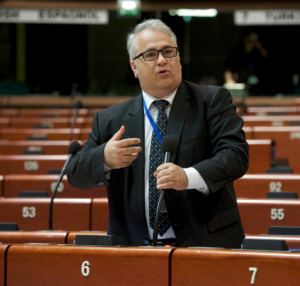
“Some 210,000 unaccompanied children sought asylum in Europe over the past five years,” says the NGO Save the Children on its website. “The total number of children arriving is likely to be much higher, with many being forced into an existence in the shadows of Europe, at risk of exploitation and abuse.” These are disturbing statistics, but they get worse. In the same period, more than 700 children, including babies, lost their lives trying to reach European shores, during perilous journeys by sea. And for those children left behind, what sort of future awaits them? “This requires a strong commitment from the Council of Europe,” Badea told me, “especially since these children are not even counted in official statistics. It is very disturbing.” It certainly is for a supposedly caring and civilised continent.
For those who set off towards Europe, the journey is invariably hazardous, especially for unaccompanied children.
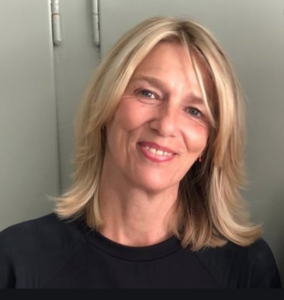
“The way Europe has treated the most vulnerable children in their hour of need is unacceptable,” says Anita Bay Bundegaard, Director of Save the Children Europe. “On any given day since August 2019, an average of 10,000 children were stranded on the Greek islands, 60% of them are under 12 years old.” News reports of the way in which the United States, along its Mexican border, separated migrant children from their parents shocked many in Europe, but the record shows that Europeans are not so innocent either. “While some efforts were made to relocate children out of Greece, thousands have been abandoned due to the unwillingness of some European countries to take in and care for some of the most vulnerable children in the world. Children continue to die on the EU’s doorstep while European leaders look the other way”, Bundegaard wrote.
A number of European countries responded to the crisis by closing their borders completely, imposing the detention of children and making it virtually impossible for them to rejoin their parents. In March 2020, some 331 children were being held in detention in Greece.
The largest proportion of unaccompanied children who arrive in Europe are from Afghanistan, one of the deadliest of countries for youngsters. Roughly half of Syria’s eight million children have known nothing but war throughout their short lives. Even when they reach Europe’s borders, they are not generally made welcome. Save the Children cites the case of Ahmed, a 15-year-old from Syria, now in Belgrade. “When we try to cross the borders we get beaten by the police, badly. They are often very rude. I think they want us to feel afraid to try again. I haven’t seen my family for a long time now, I left to go to Europe because there was nothing for me in Syria, or Lebanon, or Turkey.” Europe has not exactly shown itself to be welcoming either. Badea believes that the countries of origin, for their part, should do more, providing jobs for internally displaced adults, with tax advantages to encourage them to stay. “On the other hand,” he added, “countries of destination must ensure to people from third countries the same rights for the same work. This should be normal for any member country of the Council of Europe.” He’s right, of course: it should be. Sadly, it isn’t. Bundegaard writes on Save the Children’s website: “While some improvements have been made, these are overshadowed by harsh border policies and measures to prevent vulnerable children from entering Europe altogether. Europe needs to draw lessons from the past. New migration policies should not come at the cost of children’s lives.”
KEEPING SAFE FROM HARM
According to data from Eurostat, UNHCR, the Institute of Migration (IOM) and Save the Children, most of the 210,000 or so unaccompanied children arriving in Europe come from Afghanistan, Syria and Eritrea and end up staying mainly in Germany, Greece, Italy and Sweden. Unaccompanied child migrants are still a minority: of the 35,000 asylum seekers relocated from Greece to Italy over the last five years, only 823 were unaccompanied children. I say ‘only’ but that’s still a lot of kids. There is, however, a greatly increased risk that such children could fall victim to human traffickers and criminal gangs. “These children are one of the vulnerable groups in Europe today and are easy prey for smugglers and traffickers,” says a report by Icelandic MP Rósa Björk Brynjólfsdóttir.
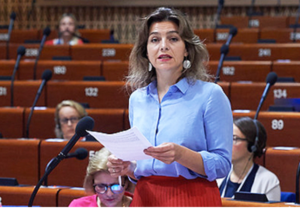
“Their vulnerability continues as they are confronted with administrative procedures they may not understand and may perceive as physically and psychologically invasive (which is, unfortunately, sometimes the case).” Brynjólfsdóttir correctly points out that the United Nations Convention on the Rights of the Child makes individual states responsible for protecting the lives of these children on their territory and for providing them with special protection and assistance. In other words, these unaccompanied children arrive with rights – if with little else – that must be protected by law. Too many European governments choose to turn a blind eye to that fact. Brynjólfsdóttir wants each child to have a form of effective guardianship to keep the wolves from their doors. “We have witnessed in the last year,” she told me, “unaccompanied migrant children are the most vulnerable group among migrant, refugee and displaced persons, and we have seen some thousands of unaccompanied children who have migrated to Europe, and we have also seen a need for us in the Council of Europe and the Parliamentary Assembly of the Council to ask firmly to protect their rights.”
It all sounds like a good idea but these sorts of measure will obviously cost the countries of destination money and effort. It’s the sort of spending frequently criticised by a populist press and attacked by citizens opposed to migration. The growth of anti-immigration political parties has demonstrated public attitudes which, though not universal, are very common. Who, then, will provide this guardianship and how will it be regulated? “In my report, we’ve put forward guidelines and recommendations to member states, how to fulfil the Council of Europe’s standards,” Brynjólfsdóttir explained. In fact, the report calls on the member states to “step up their action and assess their legislation, policies and practices and, where appropriate, take measures and allocate resources to ensure the necessary reforms to implement it.” This all sounds very sensible and humane, but there have been reports of widespread abuses of legal standards. Even the European Union’s Border and Coastguard Agency, Frontex, has been accused of stopping migrant boats and forcing them to turn back towards the shores they have just left. Such actions are called ‘pushbacks’ and are against international law.
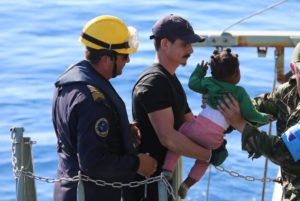
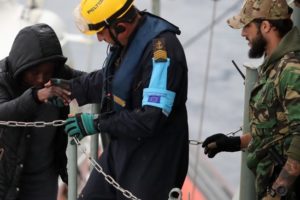
Physically sending migrants back to a country from which they have fled after they have landed is called refoulement and is also illegal, even more so, in fact, and yet some governments have openly spoken about it as an idea they are at least considering, seemingly unaware that they are proposing to break the law. Frontex has been carrying out an internal investigation at the request of the European Commission ever since reports about pushback surfaced in the media. In October 2019 the annual report of the Frontex Consultative Forum, made up of representatives of the European Asylum Support Office (EASO), the EU Agency for Fundamental Rights (EUFRA), UNHCR, the Council of Europe and the IOM voiced concern about allegations of pushbacks, even before the stories reached the media. In the European Parliament, MEPs put some tough questions to Fabrice Leggeri, Executive Director of Frontex. The NGO Statewatch has also expressed concern over the growing powers of Frontex, which has been authorised not only to watch Europe’s external borders but also to monitor ‘hot spots’ of migrants’ movements internally.
“While this is only supposed to deal with ‘trends, volumes and routes’, rather than personal data, it is intended to inform operational activity within the EU,” Statewatch wrote in a press release, “this may mean an increase in operations against ‘unauthorised’ migrants, bringing with it risks for fundamental rights such as the possibility of racial profiling, detention, violence and the denial of access to asylum procedures.”
SHOOTING THE MESSENGER
A vital link in helping migrants to survive, let alone thrive, has been the work of NGOs, often staffed mainly by volunteers. The work they have done, though, and continue to do, has brought them into conflict with some sections of society in the destination countries. The conflict and the hostility they often face led to a report adopted in November by the Parliamentary Assembly of the Council of Europe which praises their work. “Nevertheless,” it says, “attacks on NGOs and their donors have taken the form of physical violence, legal obstacles, prosecutions, including of NGOs assisting boat migrants at sea, political accusations or even racist attacks.” The author of the report, Croatian MP Domagoj Hajduković, believes the NGOs are invaluable. “NGOs are very important for our democracy,” he told me. “because they reflect the actions and involvement of civil society.” The report itself praises the way the NGOs have worked with national and international agencies.

“Depending on voluntary donations or working as contractual partners of the United Nations, the European Union (EU) or member States, those NGOs accomplish extremely valuable humanitarian work. Without the efforts of thousands of volunteers working in NGOs, member States would not be able to meet either their legal commitments regarding refugees and migrants or their daily humanitarian needs.” Basically, NGOs are stepping into a gap that shouldn’t be there: fulfilling the humanitarian needs that should be met by the country in which the migrants arrive. “When it comes to assisting migrants, it is first of all a political issue,” said Hajduković, “and that means they are very frequently labelled, that means blanket labels as organisations that do illegal activities, organisations that deal with smuggling, and so on and so on, which is not true, of course.” Hajduković admits that there are, as he puts it, “a few rotten apples” among NGOs, but they are a tiny minority, far outweighed by the very many doing good. There have been a number of reported cases in which NGO teams have been refused entry to ports to discharge the people they have rescued and some have even been prosecuted by unsympathetic governments.
I put it to Hajduković that rescuers have a duty under international law to rescue those in distress at sea, whatever governments may think. “Indeed, they do,” he replied, “and there has been a lot of controversy over rescue at sea. In fact, a separate resolution, also presented by me to the Parliamentary Assembly, deals with this exact matter. NGOs that deal with rescue at sea are especially vulnerable to this blanket labelling of them as having something to do with illegal activities, but under international maritime law it is the responsibility of each vessel to rescue shipwrecked people at sea if they come across them.” Sadly, many governments seem unaware of international maritime law and its obligations, although it is true that there is no legal obligation to open a port in order to permit disembarkation. Some ministers have seriously suggested adopting refoulement as a policy, seemingly unaware of its illegality.
The Hajduković report insists that “The legislation and practice of member States must comply with Council of Europe standards. Member States should neither discriminate against foreign NGOs providing humanitarian assistance to refugees and migrants on their territory, nor should they restrict foreign funding of humanitarian work by domestic NGOs. For their part, NGOs must comply with requirements such as respect for national laws and transparency.” The Assembly condemned attacks not only on the NGOs themselves but on their donors, some of whom have been charged with funding a terrorist or criminal organisation. “Respecting the rights and freedoms of NGOs is imperative to upholding fully functioning democratic societies,” said Hajduković.
RIGHTS AND TOO MANY WRONGS
NGOs can take many forms, as the report explains and it cites the example of the Heinrich Böll Foundation, set up by the Green Party of Germany. It works to help migrants and refugees, publishing a repor in 2018 entitled ‘Germany – Land of Immigration’. But the report also highlights right-wing political activists who created an NGO which in 2017 bought a rescue vessel with the intention of stopping boat migrants from leaving Libya. One person’s heroic rescuer is another person’s terrorist. There have, not surprisingly, been cases of funds being misappropriated. In February 2020 the European Anti-Fraud Office (OLAF) of the European Commission concluded an investigation into the use of EU funds by an NGO for Syrian refugees and found that nearly €1.5 million of a €19 million project had gone missing. The EU’s Court of Auditors called for more transparency and scrutiny of NGO funding in 2018. Meanwhile however, many of the children arriving in Europe are traumatised by their experience of conflict, of separation from their parents and of difficult, perhaps terrifying journeys.
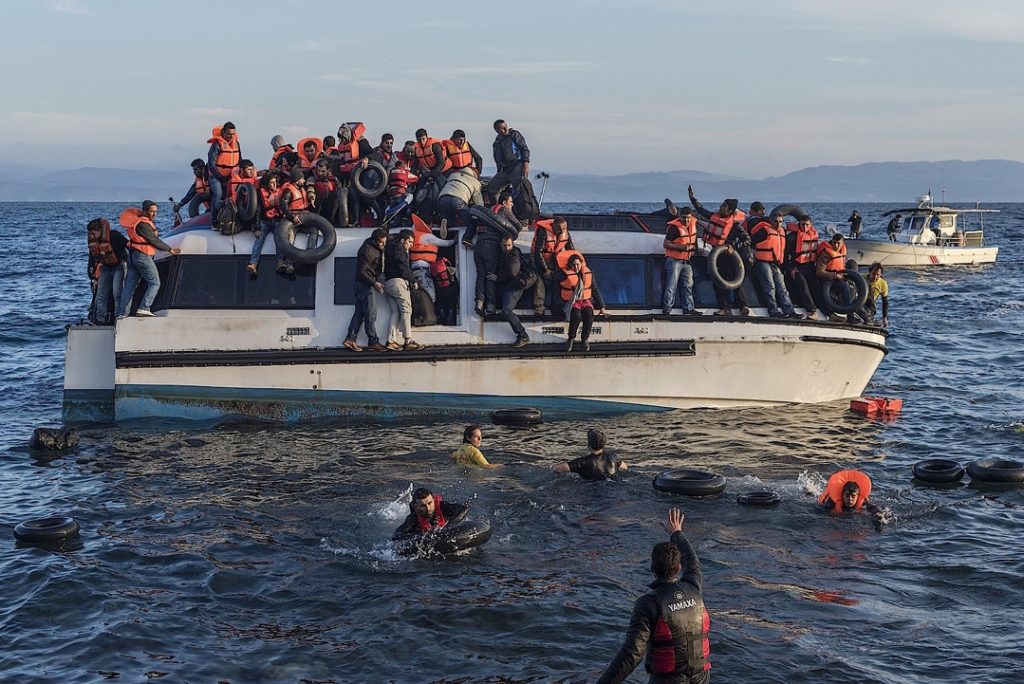
A number of European countries have taken measures to ensure that the children receive a welcome that is at least adequate, if not always warm. “While some improvements have been made,” said Save the Children’s Anita Bay Bundegaard, “these are overshadowed by harsh border policies and measures to prevent vulnerable children from entering Europe altogether. Europe needs to draw lessons from the past. New migration policies should not come at the cost of children’s lives”. On its website, Save the Children is calling for the rights of children to be “at the heart of those decisions”. It also asks for the EU and its leaders to ensure that ways are found to keep vulnerable children safe. “They must ensure that children can immediately access asylum and protection once they arrive to Europe, instead of being pushed back. More and better legal migration pathways, including swift access to family reunification, could prevent more children from dying on their way to Europe.”
The European Parliament also commissioned a study on whether EU law might unduly criminalise humanitarian assistance to irregular migrants. On 5 July 2018, MEPs adopted a Resolution on guidelines for Member States to prevent humanitarian assistance from being criminalised. In 2018 the Fundamental Rights Agency of the EU published a note on “Fundamental rights considerations: NGO ships involved in search and rescue in the Mediterranean and criminal investigations”. The Expert Council on NGO Law of the Council of Europe INGO Conference published in December 2019 its report by Dr. Carla Ferstman entitled “Using criminal law to restrict the work of NGOs supporting refugees and other migrants in Council of Europe member States”.
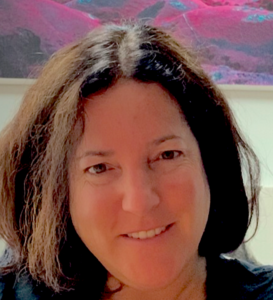
Dr. Ferstman is a Canadian-born barrister and a member of the Council of Europe’s Expert Council on NGO Law. In a paper published in the German Law Journal and on the website of the University of Essex, she explained that “Extraterritorial cooperation—including by providing funds, equipment, training, and technical support—has become central to policies aimed at preventing access of refugees and ‘irregular’ migrants to particular countries and regions.” Obligations exist, however, under human rights law to do everything possible to ensure that any cooperation they provide doesn’t lead to violations of human rights, even those perpetrated by third parties in another country. Otherwise, they can become liable for the failure to exercise due diligence to prevent human rights violations from occurring in the states in which the migrants end up. In a report for a conference of International NGOs (INGOs) at the Council of Europe in December 2019, Ferstman wrote about the heavy loss of life among refugees, mainly caused by attempts to prevent them arriving. “Many individuals have drowned in the Mediterranean, with European States taking a de minimus approach to search and rescue operations, an approach with the stated aims of discouraging unsafe migrant crossings and breaking the business model of smugglers and traffickers, but which appears to simply be about discouraging migration. Others have died on land routes, with yet others still encountering extreme forms of violence at the hands of traffickers, armed criminal gangs and some state officials, including slavery, torture and sexual violence.” This clearly does not show Europe in a very positive light, but it applies to all migrants. Unaccompanied children are, by definition, far more likely to become victims of the criminally unscrupulous.
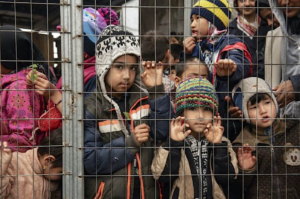
The United Nations Convention on the Rights of the Child was agreed in 1989 and it has been ratified by every country except the United States. As Amnesty International explains, children must not be seen merely as passive appendages of adults. The Convention is unequivocal: they are people with equal dignity who are entitled to respect . It provides them with their own set of rights. Those rights apply while they are travelling, even as irregular migrants, and they also apply in the countries in which they end up. Those countries have a legal obligation to care for them, protect them, clothe them and feed them. Most radically, the Convention gives children the right to a voice and to participate in all decisions that affect them. In other words, it recognises children’s right to agency. Jonathan Todres, a law professor at Georgia State University, wrote that under the Convention: “Every child in the world ‘should grow up in a family environment, in an atmosphere of happiness, love and understanding’ and be raised ‘in the spirit of peace, dignity, tolerance, freedom, equality and solidarity’.”
ALONE AGAIN, UNNATURALLY
For those left behind by parents in search of work and a settled future, ‘an atmosphere of happiness, love and understanding’ has not been their experience. “We are suggesting in my report,” Rósa Björk Brynjólfsdóttir said, “that member states should review their legislation in this field when it comes to guardianship, and we should also allocate the necessary technical, financial and human resources to ensure that every child is assigned a guardian immediately upon reception.” Given that in some cases there is hostility to immigration of any kind, what exactly does that mean? “Of course, the ideal is that the guardian should be a professional – a social worker, someone with a professional background – to help, aid and support the children in their most vulnerable situation, and I think that’s among the recommendations for a holistic system where it comes to guardianship.” Brynjólfsdóttir’s report speaks of guardianship stretching from the time the child first arrives in a country up to their reaching adulthood. I put it to Brynjólfsdóttir that it’s a lot to ask. “It is, but it’s not just about the basic needs,” she replied. “it’s also about providing the children their rights, to have them know their rights, so as to assure they will have the rights that they are entitled to. That is also a part of the guardianship.” Ensuring that the children’s rights are fully respected, though, depends on them knowing exactly what those rights are. “There is a lack of information to those children,” Brynjólfsdóttir admitted, “and also to safeguarding that the children are aware of their rights, but also just to make sure that they get their rights.”
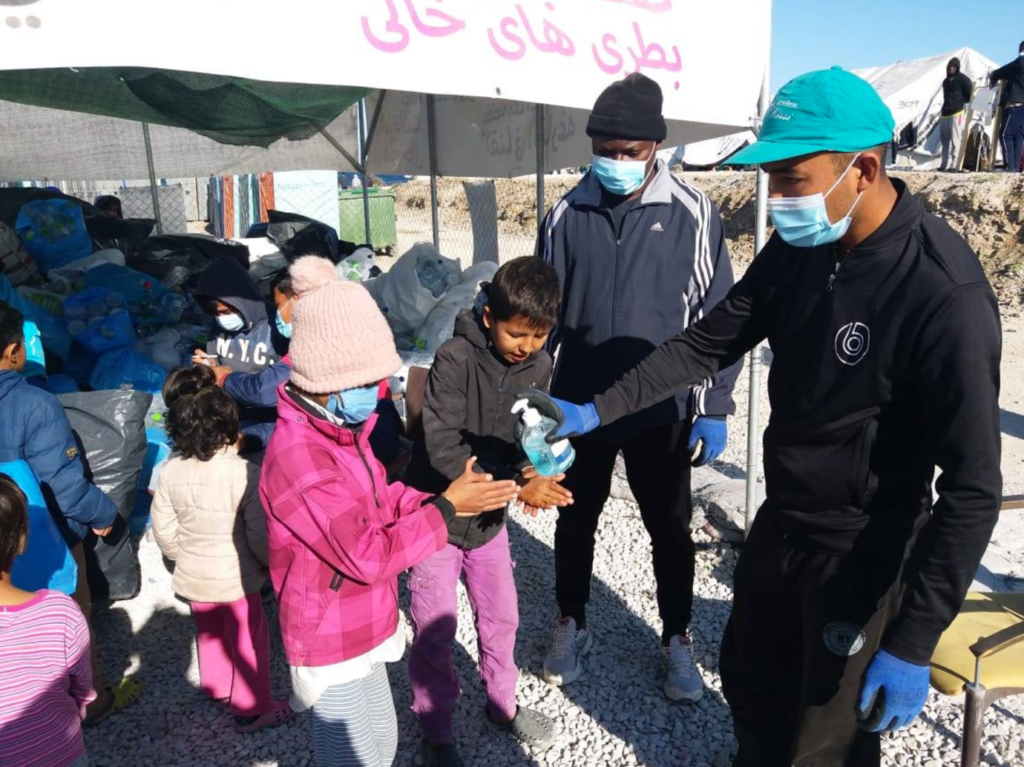
In most cases, ensuring that they get their rights is the task of the NGOs, often struggling to make headway in a hostile environment. Many NGOs feel abandoned by the failure of governments and some intergovernmental organizations to demonstrate their clear support for whatever they have to do to assist people in need. Carla Ferstman, in her report for the Council of Europe, wrote: “Instead of explicitly acknowledging the importance of their work and actively supporting it by providing an enabling environment, the work of NGOs has been thwarted by many governments. In addition to criminalisation, some NGOs have been publicly smeared in the media, some have received threats and others have been kept outside of decision-making processes and restricted in their ability to access vulnerable migrants to carry out their work.”
It is a very big problem. The UN High Commissioner for Refugees reported in late 2016 ‘the highest levels of displacement on record,’ with an unprecedented 65.3 million people around the world forced from home. “Millions upon millions of them – the vast majority – have become displaced internally or have migrated or sought refuge in neighbouring countries, particularly in Africa and the Middle East. A significant and growing number of others have embarked on dangerous and complex journeys to reach other regions, particularly in Europe, North America and Australia.” A report by Ferstman mentions the appalling conditions the migrants face because of the opposition of many people and their governments to accepting more refugees. “The deterrence policies are effectuated by broad executive powers; privatisation of many aspects of the reception, claims determination, detention and removal processes; limited transparency, safeguards and accountability and the lack of effective remedies and reparation.
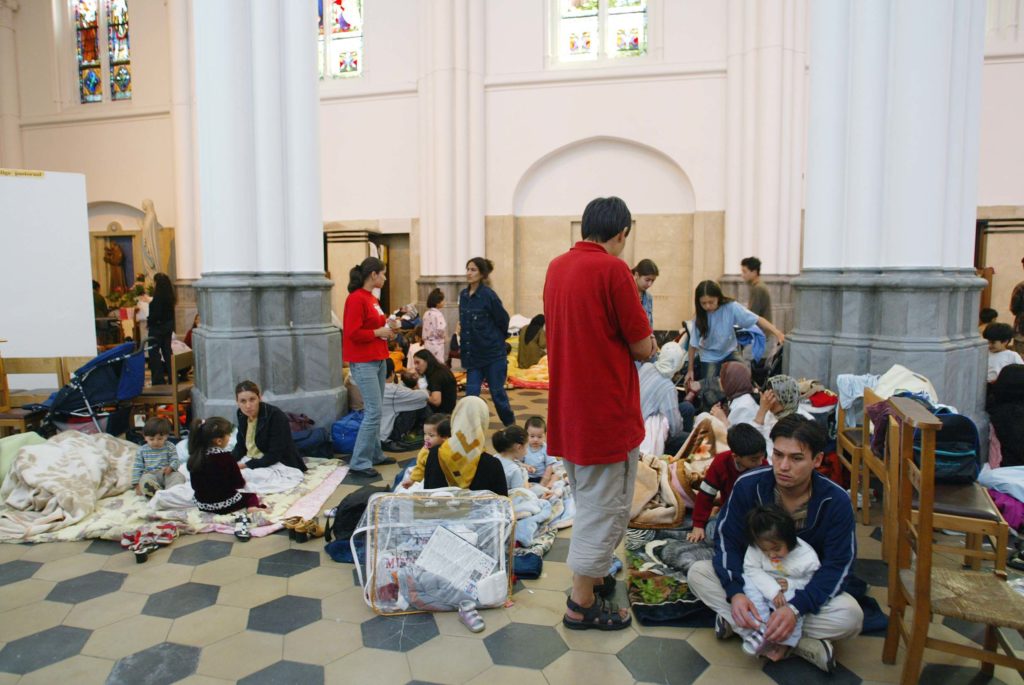
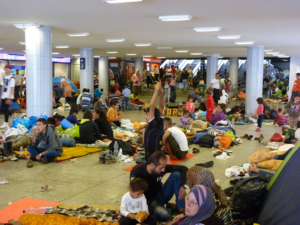
The dehumanisation of refugees and other migrants also creates an environment in which allegations of ill-treatment based on sexual and/or racial discrimination are rife, though little is done in response.” As for the idea of guardianship, will it actually happen? Will member state governments put their hands in their pockets to pay for services to help children and young people they didn’t want in the first place? “This report will help the member states,” Brynjólfsdóttir told me, “to strengthen their reception system when it comes to this vulnerable group. As we all have witnessed in Europe and in the member states of the Council of Europe…I’m not very keen on talking about the costs, but I’m talking about the effects on society. If we do not provide those children the support they are entitled to, we will see the effects of that: a lack of support in their lives in the upcoming years. That is something that we in the member states should avoid. We should instead strengthen these children, providing them with the rights and support they are entitled to and what will support them in their lives and to have a prosperous life in the future.” As the report admits, guardianship systems, where they exist at all, are not always well adapted to the needs of the unaccompanied children. “In Europe, where guardianship systems differ significantly from country to country,” says the report, “the appointment of guardians or legal representatives is a challenge, particularly due to the increase in arrivals, lack of adequate guardianship systems and lack of trained guardians which causes delays in appointment, among others.” It’s a worry for Domagoj Hajduković, too. “Especially with the pandemic and another coming winter they will become even more vulnerable. That is why NGOs and their importance should be even more stressed, because they assist and they fill the gaps the systems leave.” Hajduković’s report emphasises that countries should not regard NGOs as being involved in illegal activities: they play much too important a rôle.
Ferstman, in a report for the NGO Redress and published on the University of Essex website, mentions the way in which refugees are deliberately characterised as ‘aliens’ by some societies, by “focussing on difference; different religion, culture, traditions which will infect or negatively impact on the traditions of the host state. Linked to this is the wish to dehumanise, the stoking of fears that the unknown ‘alien’ will not be capable of or interested in respecting the values of the host state – whether these are religious or personal values and beliefs. There is often a fear that accepting large numbers of persons from a different faith or culture will upset the natural majority/minority balance in the host state, and potentially destabilise that state. In one notorious and extreme example, a Polish magazine published on its front cover a depiction of a white woman being accosted and grabbed by three dark-skinned hands, with the headline ‘The Islamic rape of Europe’.” A desire to find scapegoats for various societal problems clearly did not end with the defeat of the Nazis. Some ideas are very persistent.
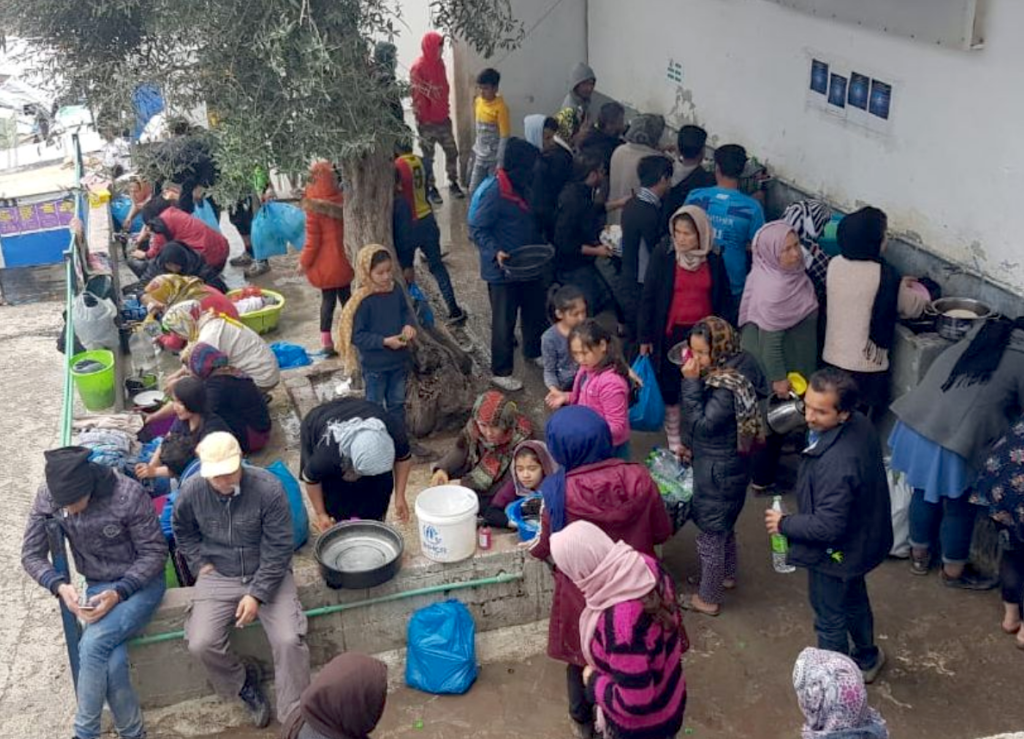
It remains illegal for a Council of Europe member state to return an asylum seeker to a country where torture is still practised. Britain tried to argue that the torture ban only applied inside member states and sought to deport a man to a country that still engages in torture. He successfully took his case to the European Court of Human Rights, which found in his favour in a somewhat oddly worded judgement: “Accordingly, the Court cannot accept the argument of the United Kingdom Government, supported by the Government, that a distinction must be drawn under Article 3 between treatment inflicted directly by a signatory state and treatment that might be inflicted by the authorities of another state, and that protection against this latter form of ill-treatment should be weighed against the interests of the community as a whole. Since protection against the treatment prohibited by Article 3 is absolute, that provision imposes an obligation not to extradite or expel any person who, in the receiving country, would run the real risk of being subjected to such treatment.” In most cases, though, it is not the risk of torture that faces those sent back. Surprisingly, perhaps, fleeing from war is not an internationally recognised reason for becoming a refugee. Living in a war zone and therefore at risk of generalised violence doesn’t count as targeted persecution. But let’s face it, nobody takes the life-threatening dangers and enormous costs involved in becoming a refugee lightly. It’s not an easy road to choose at any age.
According to United Nations Department of Economic and Social Affairs (UN DESA) data, the number of young people aged 19 or under living in a country other than the one in which they were born rose from 28.7 million in 1990 to an estimated 37.9 million in 2019. In 2019, child migrants (aged 19 years and under) accounted for 14 per cent of the total migrant population and 1.5 per cent among children globally. UNICEF, the United Nations Children’s Fund, reports that most of child migrants are boys , who make up 62% of arrivals. The numbers arriving in Greece, Spain, Italy Malta, Bulgaria and Cyprus in 2019 were up by 7% on the previous year.
27% were separated from their families and unaccompanied. In 2019, European countries recorded 672,935 new asylum seekers. nearly a third of them (202,945) children. Among children, 17,735 were considered to be Unaccompanied Asylum Seeking Children (UASC).
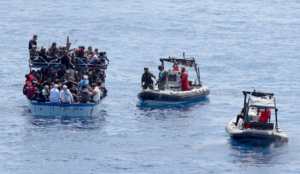
In a troubled world people are always going to try to find a peaceful and more prosperous future for themselves and even for the children sent on alone or left by themselves along the way. UNICEF said many young migrants and refugees who made the journey to Europe experienced violence and abuse along the way, with consequences for their psychological and physical wellbeing. Particularly in Italy, nearly all the women and girls who were questioned reported having survived some form of sexual or gender-based violence. A recent study revealed that men and boys are also often subject to sexual violence in the hands of armed groups, while kidnapped or imprisoned, especially in Libya. The former president of South Africa once wrote: “There can be no keener revelation of a society’s soul than the way in which it treats its children.” Perhaps we’re justified in asking: ‘how is Europe’s soul doing? Would Mandela be satisfied?’

